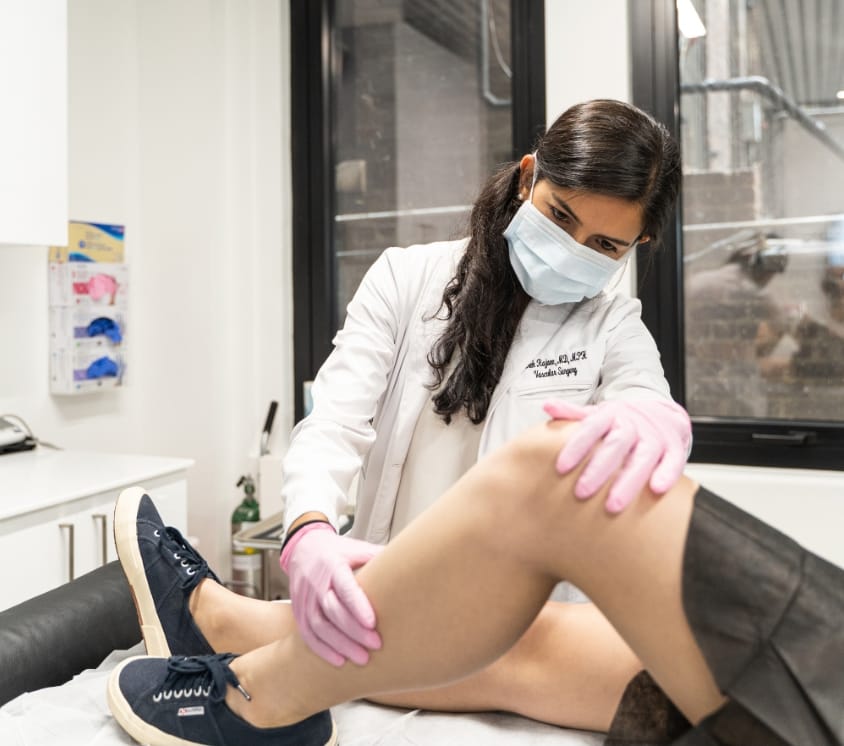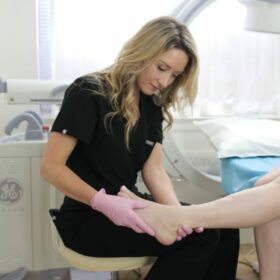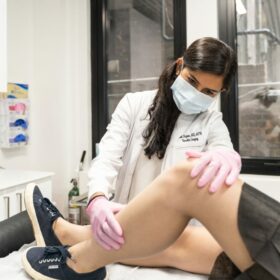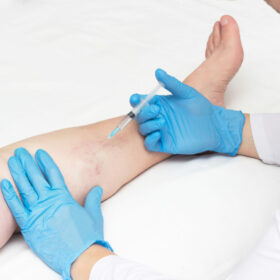What doctor should I see for varicose veins?
If you’ve noticed swollen, twisted, bulging veins on your legs, you may be suffering from varicose veins. It’s not just a cosmetic issue, but more importantly, a medical one that requires treatment. So, who should you see for varicose veins? The answer is simple: A phlebologist.
Phlebologists specialize in diagnosing and treating venous disorders, including varicose veins. They are experts in this field, having studied extensively in medical school and completing additional training in veins and circulation. Through ultrasound imaging and other advanced diagnostic tests, they can accurately diagnose the cause and severity of your condition.
A phlebologist can help you find the best treatment options for your varicose veins. Depending on your individual needs and medical history, a combination of lifestyle changes, medications, and minimally invasive procedures may be recommended. In some cases, temporary treatments may be prescribed to reduce symptoms such as pain and swelling.
Furthermore, a phlebologist can provide you with advice and proper coaching on how to reduce your risk of developing varicose veins in the future. They can recommend practices to keep your veins healthy, such as exercising and wearing compression stockings. If you’re suffering from varicose veins, you don’t have to live with this condition. Contact vein doctors today.
Should I get my varicose veins treated?
If you’re considering whether or not to get your varicose veins treated, the answer is a resounding yes! Varicose veins are not just an unsightly issue but can lead to serious health complications if left untreated.
Varicose veins are the result of weakened veins, usually in the legs, that cause blood to pool and create the bulging, ropey veins that many people are familiar with. When left untreated, this can lead to a condition known as chronic venous insufficiency, which can cause a variety of issues. Swelling, pain, and a feeling of heaviness in the legs are common. In more extreme cases, chronic venous insufficiency can cause skin discoloration, dermatitis, and even ulcers.
The good news is that there are a variety of treatments available to help treat varicose veins and chronic venous insufficiency. Treatments range from wearing compression stockings to sclerotherapy, a procedure that injects a solution into the veins to close them off, and radiofrequency ablation, which involves using radiofrequency energy to destroy the diseased saphenous vein responsible for your vein problems. You must have your varicose veins treated to improve blood circulation to the heart.
Where can I find the best clinic for varicose veins?
Vein Treatment Clinic is a group of state-of-the-art vein clinics specializing in cutting-edge, minimally invasive treatments for varicose veins. Our vein treatment clinics are led by board-certified vein doctors who diagnose the root cause of your vein problems using duplex ultrasound and other imaging tests, following which they curate a personalized treatment plan.
You can find our vein treatment clinics across the United States, including Long Island, New York City, New Jersey, California, and Maryland. If you’re in New York, you can visit our vein doctors at our vein centers in the Financial District or Midtown Manhattan, a short distance from Central Park. Please schedule an appointment at the best clinic for varicose veins.
When should you see a doctor about varicose veins?
If you notice any of the early signs of varicose veins, such as swollen legs, aching, burning, or throbbing in your legs, or visible varicose veins, it’s best to see a doctor right away. Symptoms of venous insufficiency, such as leg cramps, heaviness, fatigue, itching, and skin discoloration, should also be taken seriously and evaluated by a doctor. Don’t ignore the signs and symptoms of varicose veins — getting treatment early can help prevent more serious health problems.
Do dermatologists work on varicose veins?
Dermatologists are medical professionals who specialize in the diagnosis and treatment of skin conditions. While they have extensive knowledge and training in all aspects of skin health, they do not typically focus on the treatment of vascular conditions such as varicose veins.
Varicose veins are caused by a condition known as venous insufficiency, in which the veins in the legs are unable to effectively pump blood back to the heart. This can lead to the pooling of blood in the veins, causing them to become enlarged and visible under the skin. While varicose veins are unsightly, they are not a skin condition but a vascular one, so they are not typically treated by dermatologists.
However, dermatologists can reduce the appearance of spider veins and smaller varicose veins through a variety of cosmetic treatments, such as sclerotherapy or laser therapy. These treatments can improve the appearance of the skin, but they do not address the root cause of the problem. If you are experiencing varicose veins or other vascular conditions, please visit a specialist, such as a phlebologist or a vein doctor, for comprehensive treatment.
Vein doctors have the expertise and experience to properly diagnose and treat the underlying cause of your condition, helping you to achieve long-term relief and improved overall health.
How do you stop varicose veins from getting worse?
Varicose veins can be a painful and unsightly condition. Thankfully, there are ways to stop varicose veins from getting worse. Here are some tips to help you control varicose veins.
- Firstly, it’s important to stay active. Exercise improves circulation and reduces the pressure on your veins. Aim to get at least 30 minutes of moderate exercise each day, such as walking, jogging, swimming, or cycling.
- Secondly, you should wear compression stockings. These stockings provide gentle pressure on your legs and keep your veins healthy. They can also reduce pain and swelling.
- Thirdly, you should try to keep your legs elevated whenever possible. This reduces the pressure on your veins and improves circulation. You can elevate your legs by propping your legs up on a pillow when you’re sitting or lying down.
- Fourthly, you should avoid sitting or standing for long periods of time. This can cause your veins to become strained and worsen your condition. Whenever possible, take regular breaks and move around.











